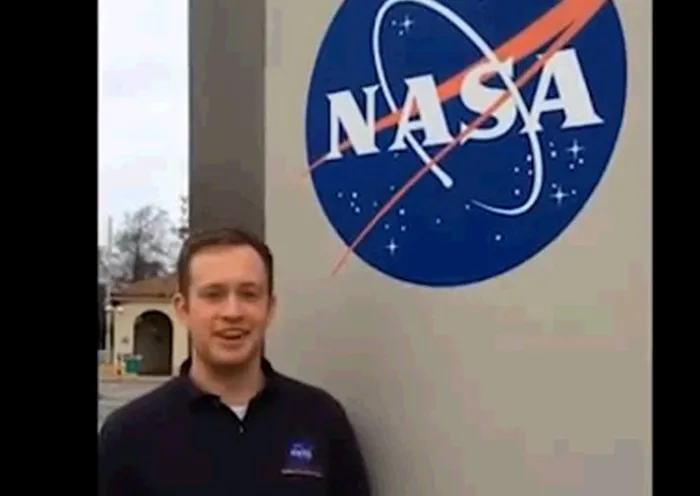Nasa, I have a problem!

To his delight, Lucas received an email with a ten-minute video made for him by research engineer Ted Garbeff of Nasa's Ames Research Centre. To his delight, Lucas received an email with a ten-minute video made for him by research engineer Ted Garbeff of Nasa's Ames Research Centre.
London - Faced with a school project on space, Lucas Whiteley boldly went where few four-year-olds have gone before and asked the big boys at Nasa for help.
With a little help from his dad, the primary school pupil sent a video of himself asking three questions to the US space agency’s website.
To his delight, Lucas received an email with a ten-minute video made for him by research engineer Ted Garbeff of Nasa’s Ames Research Centre.
Mr Garbeff, whose work in experimental fluid physics includes studying the wake of space capsules, answered the questions and gave a virtual tour of the base in Mountain View, California.
Teachers at Lucas’s primary school in Wrenthorpe, West Yorkshire, were so impressed they played it in assembly.
Lucas’s father James Whiteley, 37, an app designer, said: “When I was a kid I wrote to Nasa and got a brochure, so I thought we might be lucky if we sent a video of Lucas asking questions.
“What we got back three weeks later was amazing. Obviously Ted has thought about his audience and gone to a lot of trouble just for them.
“When I sat down to watch it with Lucas he had a big smile on his face.
“Ted is a fantastic bloke to go out of his way for someone he doesn’t know on the other side of the world.”
And the big questions?
First of all, Lucas asked: “How many stars are there?”
Mr Garbeff said no one has counted, but scientists estimate that there are 1,000,000,000,000,000,000,000,000.
Next, Lucas wanted to know “who came second and third in the race to the moon”. Mr Garbeff said he would place Russia second, and China third – although only the US has put a man on the moon. Finally, Lucas asked if any animals have been sent to the moon. They haven’t – but several have gone to space, Mr Garbeff said. He also explained that his work involves studying planes and rockets and “figuring out how things work”.
Thanking Lucas for his ‘great’ questions, he added: “It’s really a lot of fun being an engineer – you get to play with great toys all day and most importantly you get to learn about the world.
“It wasn’t easy, though, getting here, I had to work really hard. So remember to work hard in school and listen to your teacher.” He urged Lucas to work together with his class to solve problems, and signed off: “So hopefully one of these days I’ll see you all – maybe up in space.
ROCKET ENGINEER’S INSPIRING REPLY
HERE are Lucas’s questions, with extracts from Mr Garbeff’s answers:
Q: How many stars are there?
A: ‘You might see a lot of stars, but the truth is there are a lot more stars than you can even see. There are so many stars that it’s really hard to imagine how many there are.
So we haven’t counted every single star in the universe, that would take a really long time. But instead engineers and scientists are really good at estimating really large numbers.’
He adds there are around 1,000,000,000,000,000,000,000,000 stars – a number that is too big to fit on his whiteboard.
Q: Who came second and third in the race to the moon?
A: ‘The US did land the first people on the moon and in fact no other country has made it back to the moon. But Russia did manage to land a rover on the moon to drive around. So I guess I would probably give Russia second place. Very recently, a country called China has landed a rover on the moon, so China would have third place.’
Q: Did any animals go to the moon?
A: ‘No. But animals have really helped us understand the way space works and how well humans can live in space. In fact one of the first living things to go into space was a Russian dog named Laika. Laika’s now very much a space hero. She was the first living thing to go into space. Nasa also launched animals into space [including] the first primate, a chimpanzee named Ham. But none of them made it to the moon, they orbited around the Earth.’ - Daily Mail